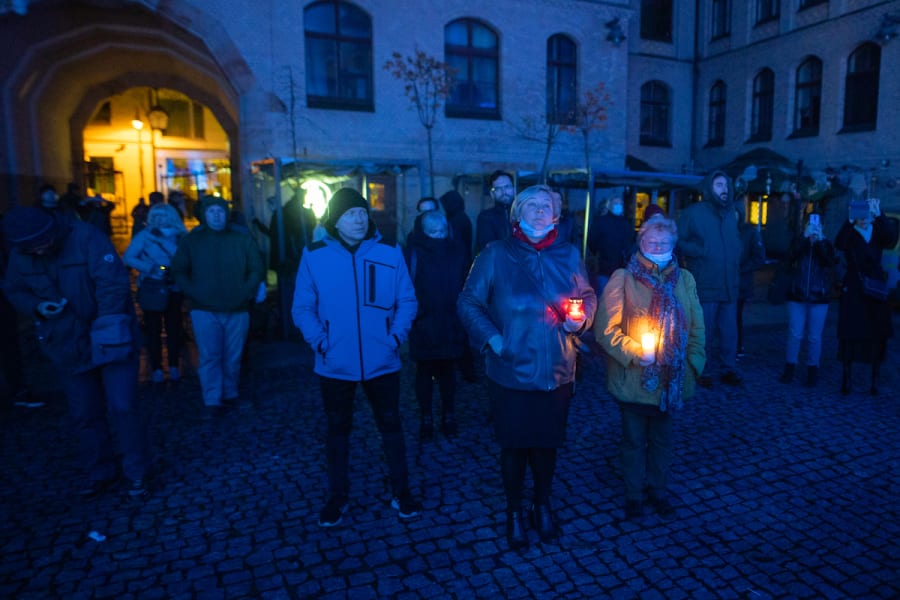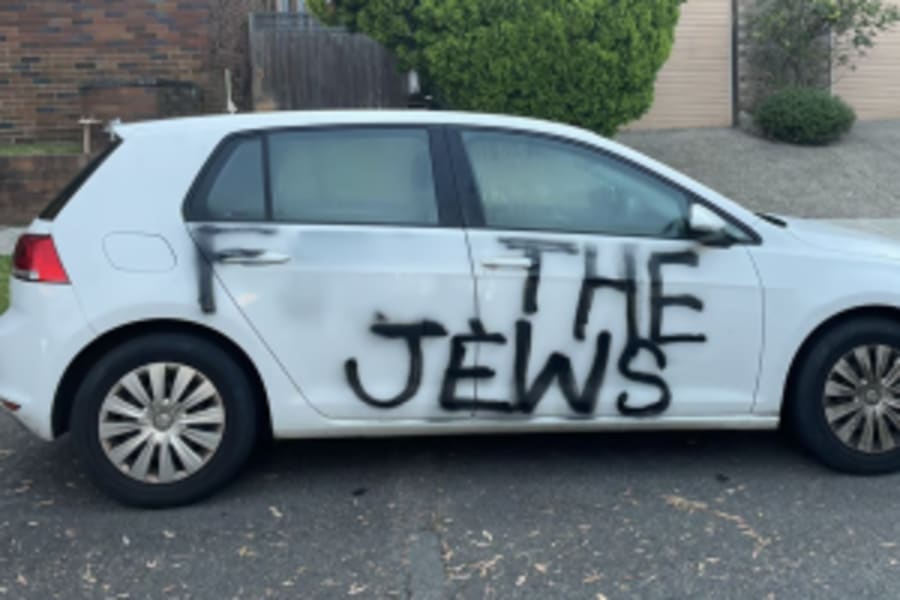Holocaust survivors warn of rising anti-Semitism on 84th Kristallnacht anniversary
As number of Holocaust survivors dwindles and memory of the Holocaust fades with time, many young people have little or no knowledge about the Nazi atrocities

Eighty-four years since Kristallnacht, “the “Night of Broken Glass,” Holocaust survivors are urging the world not to underestimate the danger of ever-present anti-Semitism.
On Nov. 9-10, 1938, Nazi rioters destroyed 267 synagogues and 7,000 Jewish businesses throughout Germany and Austria, and arrested 30,000 Jewish men, placing them in concentration camps. Some view Kristallnacht as the beginning of the Holocaust of European Jewry.
Through the campaign #ItStartedWithWords, several Holocaust survivors are warning the younger generations today that the mass murder of 6 million Jews started with words of hatred, which are still being spread today.
Eva Szepesi is a 90-year-old Holocaust survivor who was captured and deported at age 12 to the infamous death camp Auschwitz. While she miraculously survived the horror, her parents and brother were murdered by the Nazis.
However, Szepesi recalls that the anti-Semitic horror that culminated in murder started with vocalized hatred among her best childhood friends.
“It started for me when I was eight years old, and I could not understand why my best friends were shouting bad names at me,” Szepesi said.
Greg Schneider, the executive vice president of the Claims Conference, which has worked on different fronts to assist survivors and is behind the #ItStartedWithWords campaign, stressed that the campaign’s purpose extends beyond remembering the Nazi reign of terror or commemorating Kristallnacht.
“With the growing prevalence of Holocaust denial, distortion and hate speech on social platforms, the core message behind the #ItStartedWithWords campaign becomes even more important: the Holocaust did not start with camps, ghettos and deportations; it started with words of hate,” Schneider said.
As the number of Holocaust survivors dwindles and the memory of the Holocaust wanes with time, many young people in the world have little or no knowledge about the Nazi destruction of European Jewry.
In a nationwide U.S. survey from 2020, more than 60% of young Americans did not know that 6 million Jews were murdered during the Holocaust. Even more shockingly, 10% of the survey respondents said they had never heard of the Holocaust.
Ignorance about the horrific decimation of much of Europe’s Jewish population is particularly pronounced among millennials (those born from 1981 to 1996) and Generation Z (those born from 1996 to 2012).
“There is no doubt that Holocaust denial is a form of anti-Semitism. And when we fail to actively remember the facts of what happened, we risk a situation where prejudice and anti-Semitism will encroach on those facts,” warned Deborah Lipstadt, who has served as the United States Special Envoy for Monitoring and Combating Anti-Semitism since May 3.
Ignorance of the Holocaust is not limited to the young; a 2019 Pew Research Poll found that only 45% of all American adults know that 6 million Jews were murdered.
Montana Tucker is a 29-year-old singer, dancer and social media influencer to more than 8 million followers, who recently started sharing educational videos about the Holocaust, hoping that her followers would learn more.
“I think the main goal was [to educate] Gen-Z, because that’s the generation that doesn’t know as much about it,” she said. “But I think it’s also going to, hopefully, change people’s perspectives, as well.”
Anti-Semitism in the U.S. last year was the highest on record, according to the Anti-Defamation League, an organization committed to combating anti-Semitism.
Jew-hatred in American society reportedly increased 34% in 2021 compared to 2020. As in the past, the Arab-Israeli conflict in the Middle East was used as a pretext to justify hatred against Jews worldwide.

The All Israel News Staff is a team of journalists in Israel.














